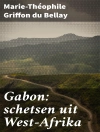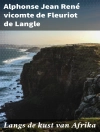In ‘How I Found Livingstone, ‘ Henry M. Stanley recounts his audacious journey into the heart of Africa in search of the legendary missionary and explorer David Livingstone, who had become silent amidst his explorations. The narrative is characterized by vivid descriptions and immersive storytelling that capture the treacherous landscapes, the vibrant cultures, and the harrowing challenges Stanley faced. Written in the late 19th century, the book reflects the period’s imperialist attitudes, while simultaneously illuminating the complexities of cross-cultural encounters and the human spirit’s resilience. Henry M. Stanley, a Welsh-American journalist and explorer, was driven by a passion for adventure and a commitment to journalism, shaped by a life marked by hardship and perseverance. His experiences as a war correspondent during the American Civil War and his subsequent travels imbued him with both a fervent curiosity about Africa and a sense of responsibility to bring its stories to a wider audience. Stanley’s quest to find Livingstone stemmed not only from a personal ambition but also from a deep-rooted desire to chronicle the unknown. This compelling account is essential reading for those interested in exploration, imperial history, and the intricate tapestry of human experiences. Stanley’s vivid prose and gripping tales will appeal to readers drawn to adventure narratives, whilst providing critical insights into 19th-century perceptions of Africa.
Yazar hakkında
Henry Morton Stanley (1841-1904) was a renowned Welsh-American journalist and explorer, most acclaimed for his search for the Scottish missionary and explorer Dr. David Livingstone in Africa. Embarking on what would become his most famous expedition, Stanley’s trek across the uncharted African wilderness culminated in the legendary encounter with Livingstone in 1871, where he reportedly uttered the now-famous greeting, ‘Dr. Livingstone, I presume?’ This pivotal moment and the details of his journey are immortalized in his 1872 work, ‘How I Found Livingstone; travels, adventures, and discoveries in Central Africa.’ The book is a testament to his persistence, resourcefulness, and the broader European imperialistic sentiment of the era. Stanley’s writing combines adventure narratives with detailed observations of African cultures and landscapes, contributing to the West’s understanding of the region. His literary style is characterized by vivid descriptions, a narrative that is both assertive and direct, and an unyielding fascination with the unknown. Stanley authored several other works, but it is his search for Livingstone that cemented his reputation as a quintessential figure of exploration literature in the Victorian epoch (Jeal, T. (2007). Stanley: The Impossible Life of Africa’s Greatest Explorer. Yale University Press.).












